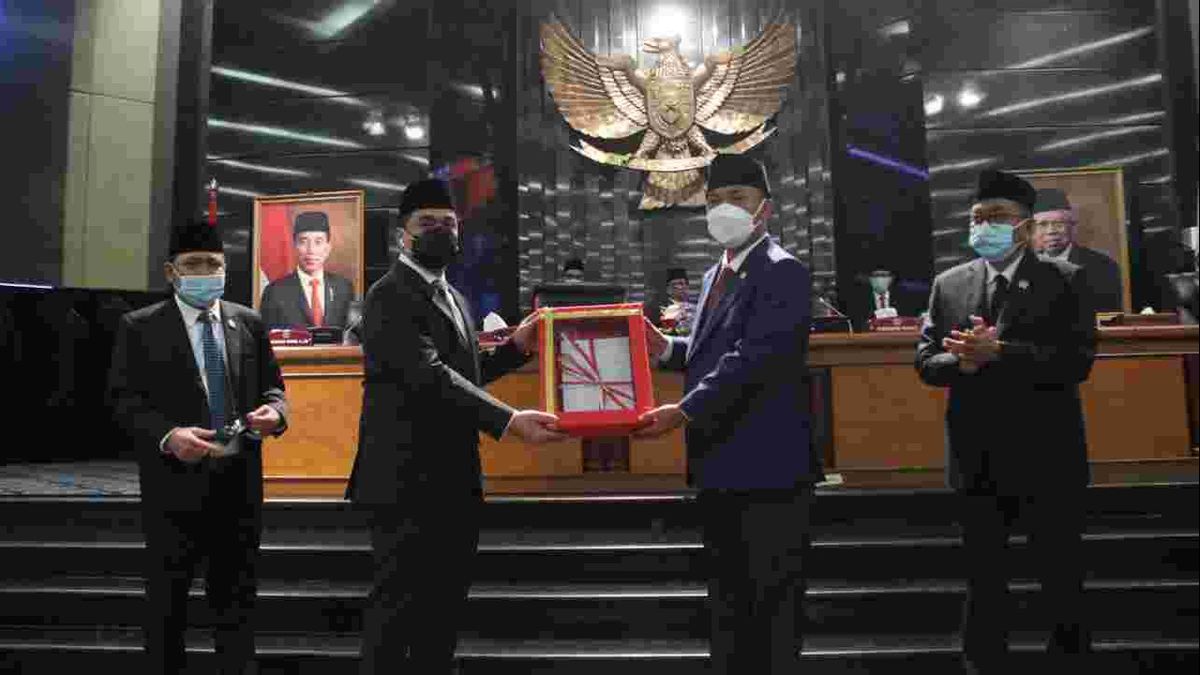JAKARTA - The DKI DPRD together with the DKI Provincial Government have ratified the draft regional regulation (raperda) regarding the handling of COVID-19 in DKI into a regional regulation (perda).
The chairman of the Regional Regulation Establishment Agency (Bapemperda) of the DPRD, Pantas Nainggolan, said there were additional types of sanctions that were not listed in the existing governor's regulation (Pergub) on COVID-19.
This regional regulation also regulates the provisions of criminal fines for individuals in DKI who do not undergo the COVID-19 handling policy in DKI, starting from refusal to receive surveillance, swab tests, to COVID-19 vaccination.
"This Perda adopts two sanctions. The first is administrative sanctions, not different from what has been stipulated in the Governor Regulation. What increases are criminal sanctions," Pantas told reporters, Monday, October 19.
The COVID-19 Perda contains 11 chapters and 35 articles. In it, regulates the provisions, responsibilities, sanctions, and authorities of local governments during the handling of COVID-19.
In Article 29, every person who deliberately refuses to carry out reverse transcriptase polymerase chain reaction (RT-PCR) or molecular rapid tests, and / or supporting examinations conducted by the DKI Provincial Government, can be sentenced to a maximum fine of IDR 5 million.
In Article 30, every person who deliberately refuses to receive treatment and / or vaccination for COVID-19, will be punished with a maximum fine of IDR 5 million.
In Article 31, every person who deliberately without permission brings a corpse with probable status or confirmation in a health facility, will be punished with a maximum fine of Rp. 5 million.
Then, if the person forcibly carrying the body is accompanied by threats and / or violence, the punishment will be a maximum fine of Rp7.5 million.
In Article 32, every person confirmed with COVID-19 who deliberately leaves an isolation facility or health facility without the official's permission, will be punished with a maximum fine of IDR 5 million.
Pantas said, the imposition of criminal sanctions for this fine could be enforced through the mechanism for minor criminal proceedings. The party authorized to decide the amount of the penalty is the judge in court.
"The penalty we have listed is the maximum. It cannot be more. If it is less than that, it is up to the judge's consideration," said Pantas.
"It could be that if you look at the situation, the judge might see the condition (of the person who is subject to a fine), maybe only Rp.50 thousand. That entirely depends on the judge's wisdom and discretion in assessing every event being heard," he continued.
The English, Chinese, Japanese, Arabic, and French versions are automatically generated by the AI. So there may still be inaccuracies in translating, please always see Indonesian as our main language. (system supported by DigitalSiber.id)












